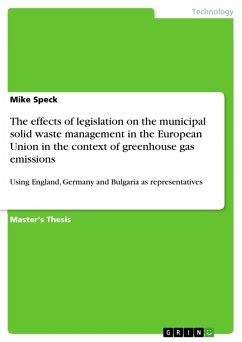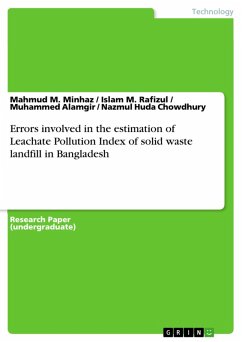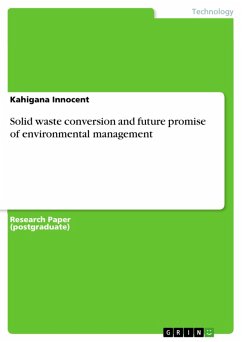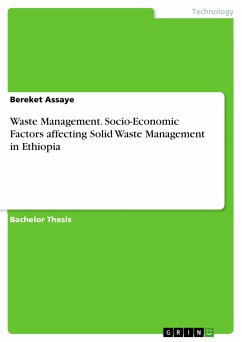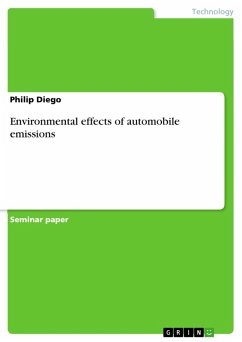Master's Thesis from the year 2005 in the subject Environmental Sciences, grade: Pass with Distinction, University of Newcastle upon Tyne, language: English, abstract: Since the pre-industrial era the concentration of carbon dioxide in the atmosphere has increased by nearly 30%, methane concentrations have more than doubled. The resulting climate change will lead to major environmental changes such as rising sea levels, shrinking mountain glaciers, the spread of infectious diseases and increased heat related mortality, impacts to ecosystems and loss in biodiversity, and agricultural shifts such as impacts on crop yields. As this increase is at least partly caused by human activity, the effort to confront anthropogenic greenhouse gas emissions has increased over the last years. Probably the most important measure implemented is the Framework Convention on Climate Change. In the EU about one third of manmade methane emissions, with a global warming potential 21 times greater than that of carbon dioxide, can be attributed to solid waste disposal. With some 60% of municipal solid waste still being disposed of to landfill without any form of pre-treatment and extensive reliance on incineration for treatment of most of the remainder, it is clear that there is considerable scope for improvement. In this report the capability of either European or national legislation to improve the actual situation on greenhouse gas emissions related to the management of municipal solid waste was investigated by using England, Germany and Bulgaria as representatives. From the results obtained by applying a LCA it becomes obvious that European legislation will improve the actual situation on the management of municipal solid waste. The greenhouse gas emissions generated in England will be reduced by more than 75% and thus result in a negative greenhouse gas flux. In Bulgaria the emissions will decline by more than 82%. With regard to the waste management hierarchy the greatest improvements will be reached by reducing the amount of biodegradable municipal solid waste from landfilling and meanwhile focusing on material recycling. To deal with the putrescible fraction biological treatment options should be preferred to thermal treatment methods. All improvements achieved by the different scenarios are based on effective source segregated collection schemes. This measure could be justified by the fact that most treatment options rely significantly on the quality of the input materials and that in comparison with the whole municipal solid waste management emissions based on collection and transportation could be neglected.
Dieser Download kann aus rechtlichen Gründen nur mit Rechnungsadresse in A, B, BG, CY, CZ, D, DK, EW, E, FIN, F, GR, HR, H, IRL, I, LT, L, LR, M, NL, PL, P, R, S, SLO, SK ausgeliefert werden.

